Search Images
Browse Content (p. 1691)
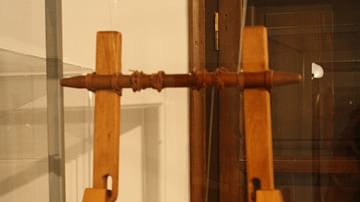
Image
Ancient Greek Forminx
A reconstruction of the forminx, a stringed instrument which was played to a singing accompaniment. (Museum of Ancient Greek Musical Instruments, Katakolon, Greece).

Image
The Great Stupa at Sanchi
The 'Great Stupa' at Sanchi is the oldest stone structure in ancient India and was originally built by the emperor Ashoka the Great in the 3rd century BCE. Its nucleus was a simple hemispherical brick structure built over the relics of the...

Image
Sophia-Wisdom, Celsus Library, Ephesos
A detail of the facade of the Celsus Library in Ephesos (c. 117 CE). The statue represents
wisdom (sophia), an attribute associated with the former proconsul Celsus to whom the building was dedicated.
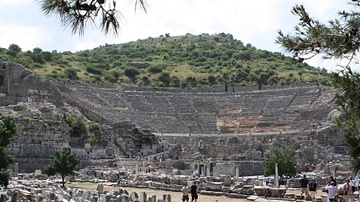
Image
Theatre of Ephesus
The theatre of Ephesus, Turkey, was constructed c. 300 to c. 290 BCE and built into the hill of Panayir Dagi.
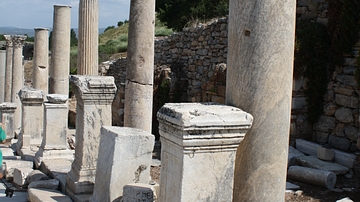
Image
Curetes Street, Ephesos
Leading from the Heracles Gate to the Celsus Library, Curetes street (named after the priest class of Ephesos) was lined with colonnaded galleries, various temples, store rooms and houses, and statues of the city's benefactors (of which the...
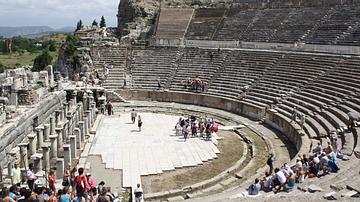
Image
Stage, Theatre of Ephesos
First constructed in the reign of Lysimachos (early 3rd century BCE), the theatre is built into a natural hill and construction evolved through Hellenistic and Roman times. The seated area (or cavea) was larger than a semi-circle and 38m...
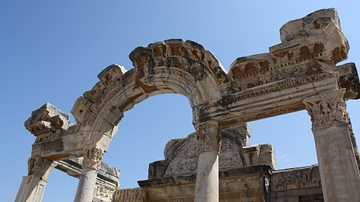
Image
Temple of Hadrian, Ephesos
A detail of the temple dedicated to the Roman Emperor Hadrian, Ephesos (2nd century CE). The temple consisted of an outer porch - with four frontal columns, triangular pediment and arch - and an inner cella.
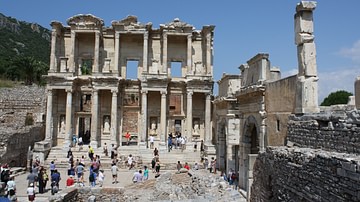
Image
Library of Celsus, Ephesus
Completed in 117 CE, the Library of Celsus at Ephesus was ordered built by Tiberius Julius Acquila in memory of his father Tiberius Julius Celsus Polemaeanus, proconsul (governor) of the Asian province c. 105 to 114 CE.
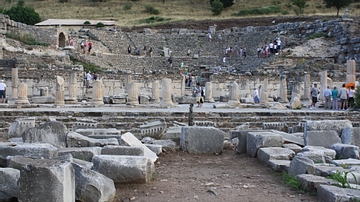
Image
The Odeion, Ephesos
The Odeion (or small theate) of Ephesos was built in the second century CE and was used as both a meeting chamber and for entertainment. The marble seats gave a capacity of approximately 1,400.
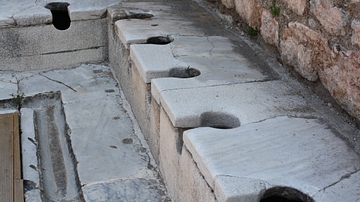
Image
Roman Latrine, Ephesos
The communal latrine at Ephesos. Fresh water continuously ran down the channel in the floor in front of the seats for users to wash their hands (1st century CE).